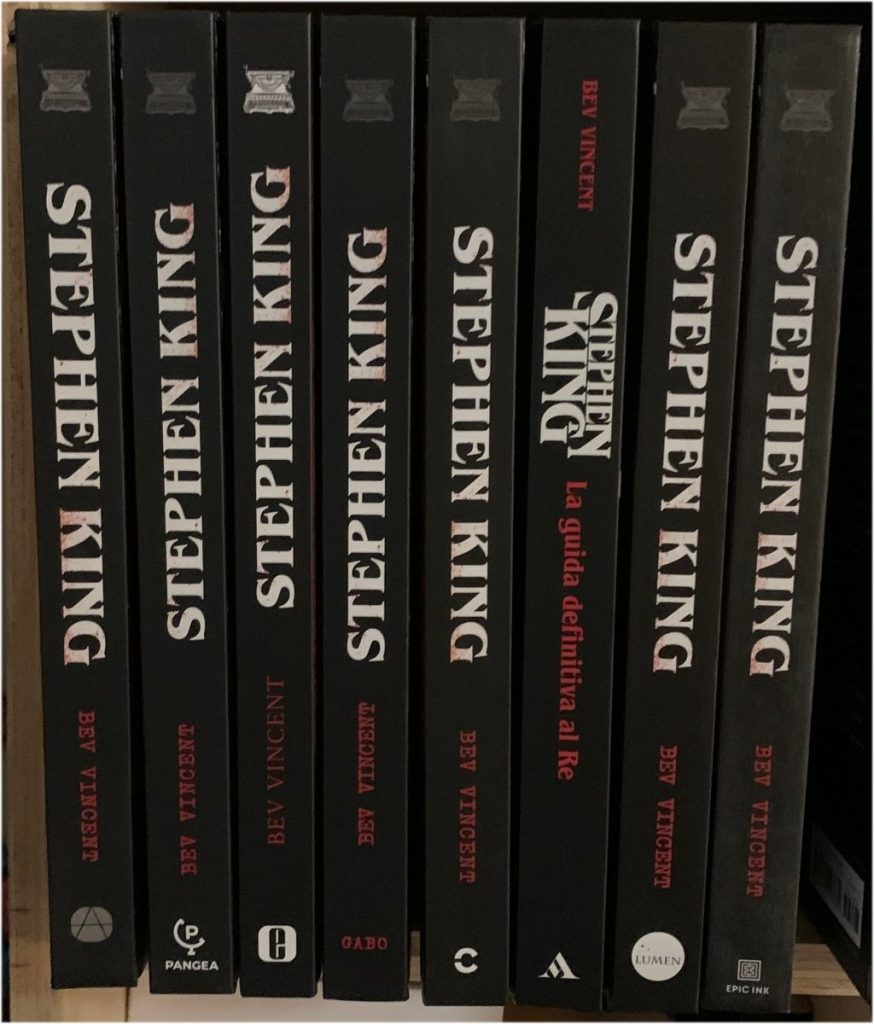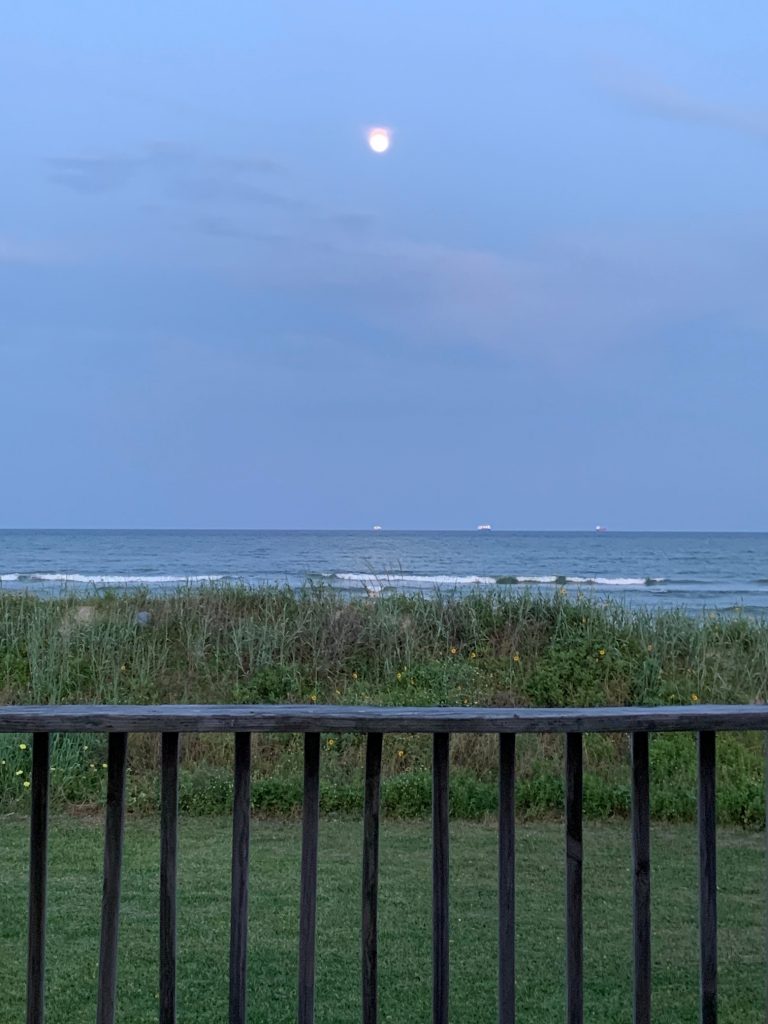The year 2023 is almost at an end and we’re staring down the barrel of 2024, which looks like it may be an “interesting” one, in the Chinese curse sense of the word. I find it instructive to listen to or read interviews from decades in the past (even stand-up comic routines) in which people talk about how terrible things are at the moment and I have to wonder When Will There Be Good News? (to purloin the title of a fine novel by Kate Atkinson. It’s all relative, isn’t it?
Didn’t go very far this year. We had a couple of vacations at our favorite rental house in Surfside Beach, once for each of our birthdays. The latter was a working vacation—we didn’t take time off from work and were at our respective computers during the daytime, but with the sound of the surf and the beautiful vistas in the background. I could do that again! While I was there, I reread The Stand for the first time in years and established a detailed timeline of the book for the short story I’d been invited to write for the Stand-inspired anthology edited by Christopher Golden and Brian Keen. We prepared most of our meals—although we had a few at the nearby beach-front restaurant—did a jigsaw puzzle (there were a dozen pieces missing from it!), and watched old shows on MeTV in the evenings.
I do have plans for a couple of trips in the coming days, including attending Chris Golden’s House of Last Resort Weekend in January. I don’t look forward to the travel part of these events, but I am looking forward to seeing people I haven’t been with in over four years.
I’m still writing every day, although my day job has been encroaching on my weekends this past month or so. I also decided to learn some Spanish and now have a 75-day streak on Duolingo. After living in Texas for over 30 years, I figured it was time.
Stephen King: A Complete Exploration of His Work, Life and Influences is now or soon will be available in eight languages (other than English): Croatian, Italian, Czech, German, Polish, Spanish, Hungarian and Japanese. It’s been a lot of fun seeing the book get some press in other languages. For example, the Czech edition is featured in the December issue of Pevnost magazine. Maybe I’ll be able to read the Spanish edition one day.
The English edition is still a #1 bestseller in the category of Horror & Supernatural Literary Criticism. It was also nominated for a Locus Award. There’s a “discount” edition available if you have an Ollie’s Bargain Outlet in your area—it has a different cover, which is kinda cool. Be on the lookout for news concerning a new edition that should be available in late 2024.
This was a good year for short story publications, with an even dozen appearing in anthologies and magazines. They run the gamut from crime to horror to science fiction to fantasy.
- Life Saver, Still of Winter, February 2023
- A Girl and Her Dog, Shortwave Magazine, Feb 8, 2023
- Chapter 2, Sunny Pines (round robin novella), Cemetery Dance Publications, March 2023
- The River Heights Ripper, Black Cat Weekly #84, April 2023
- Crocodile Tears, More Groovy Gumshoes, Down and Out Books, April 2023
- His Father’s Son, Ellery Queen’s Mystery Magazine, July/August 2023
- Freya Goes Viral, Mirrors Reflecting Shadows, July 29, 2023
- Grand-Père’s Last Transmission, Rhapsody of the Spheres, Third Flatiron Publishing, August 15, 2023
- Jurisdiction, The Perfectly Fine Neighborhood, September 2023
- Turning to Stone, Road Kill: Texas Horror by Texas Writers, Vol. 8, Hellbound Books, 2023
- Gemini, Mickey Finn Volume 4, December 11, 2023
- Helen Wheels, The Binge-Watching Cure III, Claren Books, December 16, 2023
I have several more in the queue for 2024 already as well (plus nearly another dozen in submission). I may taper off writing stories to concentrate on longer fiction next year. I have a very rough draft of “The Dead of Night” for Dissonant Harmonies II with Brian Keene and notes and a couple of chapters for a novel that I want to tackle starting in January.
In addition to a couple of columns and reviews at News from the Dead Zone, I published three essays this year:
- Graham Joyce’s The Tooth Fairy, The Stephen Kingdom BOO!k Club, October 30, 2023
- Facing Reality, Something is Going to Happen, EQMM, June 8, 2023
- The Long Walk: An Introduction in Three Parts, The Long Walk, Centipede Press, 2023
I did my regular year-end roundup for the next Stephen King Catalog/Annual from the Overlook Connection, too.
I also took part in several podcasts/interviews:
- Dark Tower V Wolves of the Calla Palaver – Dark Tower Radio Episode 138 (November 20, 2023)
- Happy Goat Horror (October 8, 2023)
- The Cemetery Dance Interview: Bev Vincent Revisited (March 17, 2023)
- Constant Writers (February 22, 2023)
- Dark Bites (January 20, 2023)





